World Bank Allocates $40m to Boost Health Insurance for Poor Nigerians Under New HOPE-Health Programme In a landmark move aimed at strengthening Nigeria’s healthcare safety net, the World Bank has allocated $40 million to support financial protection for the country’s poorest and most vulnerable citizens. The funding is part of a broader health intervention known
World Bank Allocates $40m to Boost Health Insurance for Poor Nigerians Under New HOPE-Health Programme

In a landmark move aimed at strengthening Nigeria’s healthcare safety net, the World Bank has allocated $40 million to support financial protection for the country’s poorest and most vulnerable citizens. The funding is part of a broader health intervention known as the Human Capital Opportunities for Prosperity and Equality – Health Programme-for-Results (HOPE-Health-PforR), which was officially approved on September 26, 2024. The programme, expected to run until June 30, 2029, seeks to improve access to essential health services and build a more resilient healthcare system across Nigeria.
The HOPE-Health initiative is backed by a robust financial package: a $500 million credit facility from the World Bank’s International Development Association (IDA) and an additional $70.01 million grant from the Global Financing Facility (GFF). The program’s framework incorporates performance-based disbursements and technical assistance to ensure targeted impact and sustained implementation.
Kola Abiola Denies IBB Apologized For June 12 Annulment, Calls For Public Acknowledgment
The $40 million allocation falls under Disbursement Linked Indicator 3 (DLI 3), which specifically aims to expand financial protection through health insurance schemes. According to a World Bank implementation document reviewed by Sunday PUNCH, the DLI is structured as a performance-based disbursement. This means funds will only be released once predetermined enrolment targets are met and independently verified.
The primary goal of DLI 3 is to shield vulnerable populations from catastrophic health expenditures. The funds will be disbursed by the Federal Government and subsequently allocated to states that achieve set milestones in terms of enrolling indigent populations in health insurance or related financial protection mechanisms.
The $40 million forms part of Result Area 2 of the programme, which focuses on increasing the utilisation of essential health services. A total of $272.5 million has been earmarked for this area—$239 million in IDA credit and $33.5 million in grant funding.
In line with the program’s goals, DLI 3 is designed to be both scalable and time-bound, with clear performance indicators that must be met within defined periods. The approach is intended to incentivize federal and state health institutions to prioritize inclusive healthcare access and transparency.
Strengthening Nigeria’s Fragile Health Infrastructure
The HOPE-Health programme is set to tackle Nigeria’s long-standing healthcare challenges, which include high out-of-pocket expenditures, limited access to maternal and child health services, and weak digital infrastructure. The World Bank emphasized that the initiative will support institutional reforms at both federal and state levels, ensuring that improvements are sustainable and scalable.
A key feature of the programme is its hybrid structure, combining a Program-for-Results (PforR) financing model with technical assistance under Investment Project Financing (IPF). The IPF component will bolster capacity-building efforts for critical health institutions such as the National Primary Health Care Development Agency (NPHCDA) and the National Health Insurance Authority (NHIA).
Additional highlights of the programme include the deployment of public health fellows to all 774 Local Government Areas, expansion of digital health platforms, and the scale-up of maternal health innovations in underserved and climate-vulnerable regions.
Sector-Wide Approach for Cohesive Implementation
The HOPE-Health programme follows a Sector-Wide Approach (SWAp), which aligns multiple development partners and national stakeholders under a single implementation strategy. This method fosters coordination, reduces duplication, and ensures that all interventions are harmonized to deliver measurable outcomes.
With the majority of Nigeria’s healthcare financing still driven by personal spending, the $40 million performance-linked allocation is being viewed as a significant step toward reducing financial pressure on low-income households. However, its effectiveness will depend on the commitment of state governments to meet enrolment targets and comply with performance verification processes.
Rising Poverty Underscores Urgency
The urgency of this initiative is further underscored by alarming poverty projections. According to the Africa’s Pulse report for April 2025, poverty in Nigeria is expected to rise by 3.6 percentage points by 2027. The World Bank attributes this to declining oil revenues and fragile governance structures, common challenges in resource-rich but unstable countries.
“Resource wealth combined with fragility or conflict is associated with the highest poverty rates, averaging 46 per cent in 2024, which is 13 percentage points higher than in non-fragile, resource-rich countries,” the report stated. Nigeria is among the top four countries in Sub-Saharan Africa that account for more than half of the region’s 560 million extremely poor people.
Federal Government’s Expanded Welfare Measures
Complementing the World Bank-backed initiative, Nigeria’s Federal Ministry of Humanitarian Affairs and Poverty Reduction has accelerated its Conditional Cash Transfer (CCT) programme. According to Minister Nentawe Yilwatda, over six million Nigerians have benefited from the scheme within the past six months—a massive scale-up compared to the two million supported over the previous nine years.
The minister noted that the new approach involves digitizing households on the national social register, providing them with digital identities, and creating e-wallet accounts for transparent disbursement. By October 2025, the ministry aims to reach 15 million beneficiaries.
In a bid to ensure credibility, the government enlisted the World Bank to conduct an independent verification of the beneficiaries. According to Yilwatda, “The results confirmed that 96 per cent of recipients were verified in person by the team, while the remaining four per cent could not be reached due to insecurity or remote locations.”
As the HOPE-Health programme unfolds, the $40 million earmarked for financial protection will serve as both a lifeline and a test. Its successful implementation could redefine healthcare access for millions of Nigerians and set a precedent for performance-based development financing.
If Nigeria can meet its targets and fully utilize this support, it will not only improve health outcomes but also provide a critical buffer against deepening poverty and inequality.



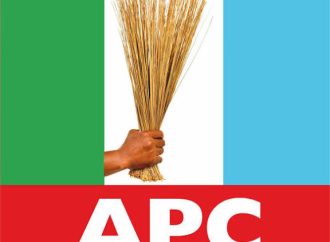
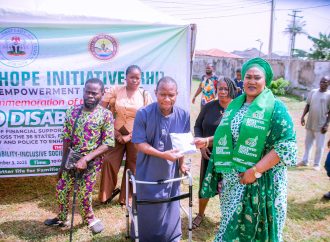
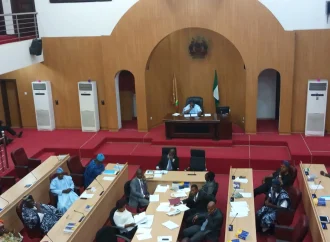



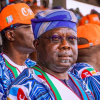

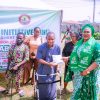





Leave a Comment
Your email address will not be published. Required fields are marked with *